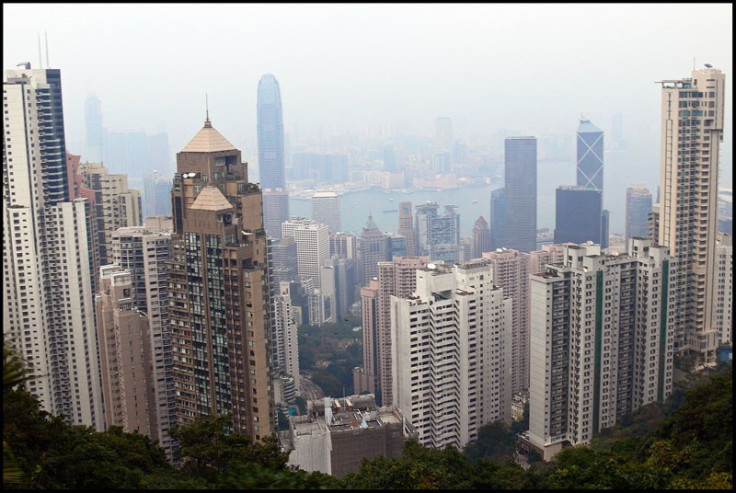Another Trade Scandal Brews in China as Discrepancies Emerge in Hong Kong Trade Data

China claims to have exported more to Hong Kong than the territory imported from Mainland China in September, implying that the practice of fraudulent trade invoicing has reared its head once again.
Bloomberg reports that China recorded $1.56 of exports to Hong Kong for every $1 in imports recorded in the semi-autonomous region, through September. Year-on-year, the figures are even more damning: China recorded an increase in exports to Hong Kong of 34% on September 2013, while Hong Kong registered an increase in imports of just 5.5%.
It points once more to Chinese companies manipulating their export facilities and data to take advantage of the appreciating exchange rate of the renminbi. Beijing places strict restrictions on capital outflows and inflows, leading analysts to believe that companies are over-invoicing for the goods they export, in order to get a hold of appreciated currency.
"While the abuse of trade invoicing to move money into and out of China has always been present, the scale of the practise has escalated in recent years. The problem was particularly bad in early 2013, and we don't seem to have reached that sort of stage yet this year, but it is worrying that the impact of the crackdown introduced by the authorities last year has already faded," Duncan Innes-Ker, China analyst at the Economist Intelligence Unit, told IBTimes UK.
"Most of the distortion appears to be in data for trade with Hong Kong and Taiwan. We can get a pretty good read for what the underlying picture is like, as the figures from these other countries tend not to be as badly affected. However, the trade numbers feed into other official Chinese figures, such as those for GDP growth, and the NBS [China's National Bureau of Statistics] is not very open about how it deals with this type of distortion, so working out how much these have been affected can be more complicated," he added.
While the abuse of trade invoicing to move money into and out of China has always been present, the scale of the practise has escalated in recent years
It brings echoes of the practice which came to light in Qingdao earlier this year, when Decheng Trading, a Chinese company, was at the centre of a collateral trade scandal. Essentially, the company is alleged to have used fake warehouse receipts in order to secure multiple loans using single cargoes of copper and aluminium as collateral, stored at Qingdao Port.
This illegal practice is thought to have become more commonplace as China attempts to move from an investment-led to a consumption-led economy. The People's Bank of China (PBOC – China's central bank) has tightened its lending rates. Finance has been in even shorter supply, with greater percentages of commodity collateral required to obtain loans, leading in turn to companies using the same collateral to obtain multiple loans.
This in turn feeds into a manipulation of the currency markets to bypass China's capital flow restrictions and take advantage of currency appreciation. Chinese companies have been using trade finance instruments, collateralised with commodities, in order to invest in high-return shadow banking products, which in turn enable the shadow banks that are issuing them to lend to the real estate sector.
The instruments are commonly traded between entities of the same country in Hong Kong and on the Mainland, in order to make profits on currency rates, using the same cargo all the time. Essentially, the company passes the commodity or product between its on and offshore entity, often borrowing multiple times on the back of it, simultaneously making money on exchange rates.
The extra liquidity has, according to many analysts, been helping inflate the country's property sector.
"As GDP growth in China continued to slowly but surely decline, some Chinese companies sought more inventive means to keep their revenue stable; one way has been to sell the commodity back and forth between an overseas and a domestic entity, every time taking six-month commodity loans, and investing the funds in shadow banking high return products," Daniël de Blocq van Scheltinga, the managing partner of Hong Kong-based investment firm Polarwide, explained to IBTimes UK.
In a survey released earlier in October, it was reported that 54% of Chinese exporters quizzed said the issuance of fake invoicing was common
"Investments in the shadow banking high return products enable the shadow banks to continue to lend to the real estate sector, in turn fuelling the housing boom, which continues in second and third tier cities, despite government measures to slow this down – although very recent data suggest that finally this might be happening...but it's too early to really tell," he added.
Speaking to Bloomberg about the latest data discrepancy, Shen Jianguang, the chief Asia economist at Mizuho Securities, said: "This is definitely another important piece of evidence of over-invoicing exports to Hong Kong to facilitate money inflow into China. So we shouldn't be too optimistic about recent export data from China."
In a survey released earlier in October, it was reported that 54% of Chinese exporters quizzed said the issuance of fake invoicing was common. The report, authored by the Financial Times, posed questions as to the actuality of the huge Chinese trade surplus (which rose to record totals in July and August, up 78% year-on-year in the latter).
The renminbi has gained in strength against the dollar for the past five years and the manipulation this appreciation has led to China attempting to introduce measures to deflate it since the beginning of 2014.
© Copyright IBTimes 2025. All rights reserved.






















